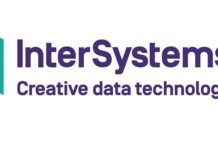Health Quest and IBM Watson Health have entered an agreement that will leverage the power of artificial intelligence (AI) with the goal of increasing participation in clinical trials. Health Quest will deploy IBM Watson for Clinical Trial Matching, a cognitive computing system that matches patients to clinical trials for which they may be eligible, throughout its hospitals.
IBM Watson for Clinical Trial Matching helps clinicians and coordinators more easily and quickly identify trials and potentially eligible patients, enabling healthcare providers and patients to consider appropriate ones as part of a care plan. The solution eliminates the need to manually compare enrollment criteria with patient medical data, making it possible to efficiently identify an individual’s potential trial options and provide access to novel cancer care treatments.
“Health Quest is committed to becoming a leader in the application of AI and other advanced technology to improve patient care and provider performance. Watson for Clinical Trial Matching allows us to improve patient access to advanced clinical trials by removing the drudgery of manually searching through charts to quickly match patients with the best clinical trial(s) for their condition,” said Dr. Glenn Loomis, chief medical operations officer, Health Quest.
“While clinical trials offer patients access to promising new and emerging treatments, only 5 percent of adult patients with cancers participate in clinical trials. As a result, 80 percent of clinical trials fail to meet enrollment timelines and requirements,” said Kyu Rhee, vice president and chief health officer, IBM Watson Health. “By integrating IBM Watson for Clinical Trial Matching, Health Quest aims to boost clinical trial enrollment and, by providing access to new, cutting-edge treatments, the health system can play a key role in advancing the science of oncology care.”
One academic medical center found that in the 18 months after implementation, there was on average an 84 percent increase in enrollment to its systemic therapy clinical trials for breast cancer (from 3.5 patients/month to 6.4 patients/month). The time to screen an individual patient for clinical trial matches also fell when compared with traditional manual methods.
Additionally, in a study with the Highlands Oncology Group and Novartis, use of IBM Watson for Clinical Trial Matching successfully cut the time to screen patients for trial eligibility by 78 percent, reducing processing time from 1 hour and 50 minutes to 24 minutes.
The use of IBM Watson for Clinical Trial Matching further scales Health Quest’s use of AI within its system. Health Quest uses Watson Care Manager to identify, categorize and rank relevant concepts from unstructured care management notes and identify gaps in care, track individual touch points and refine its process to improve system-wide population health. In the health system’s first year working with Watson Care Manager, Health Quest earned a 1.65 percent merit-based payment bonus from the Center for Medicare and Medicaid Services and generated $3.7 million in new revenue by more-efficiently tracking patients in need and prompting them to be seen for routine care. Health Quest is investigating further AI applications in its journey to be a leader in the use of advanced technology to improve the care of patients and support providers.

























